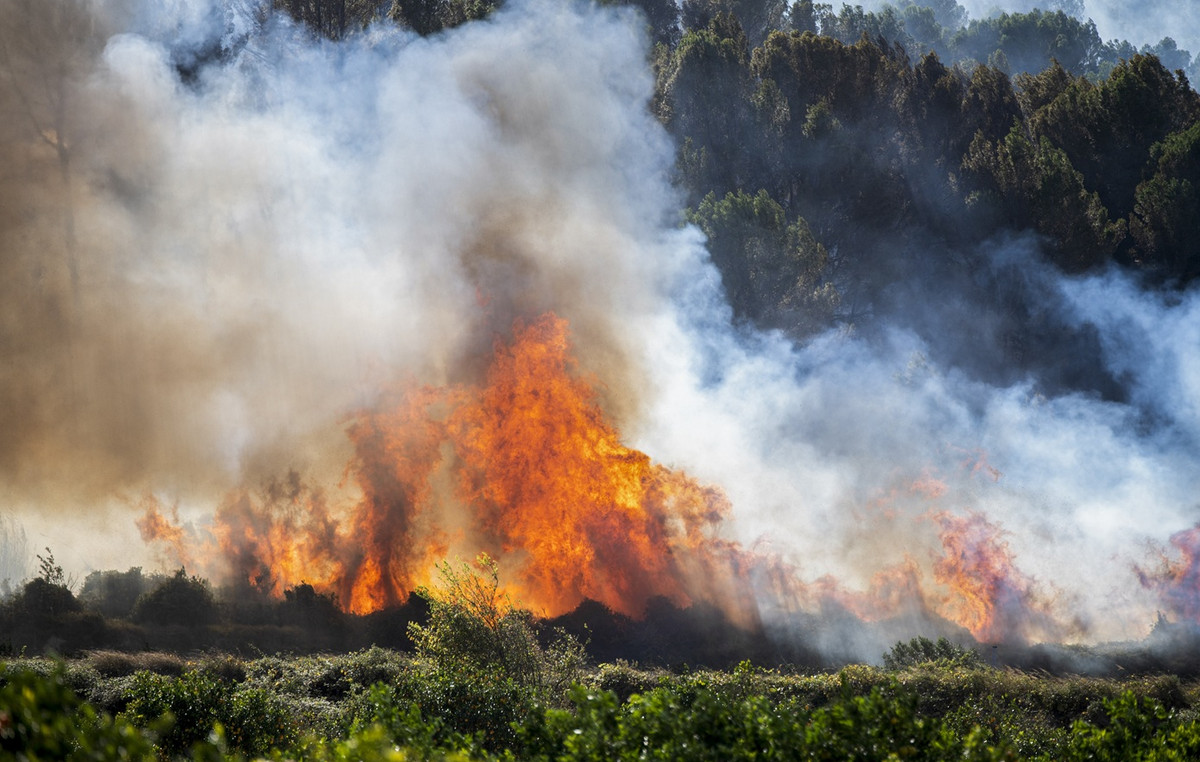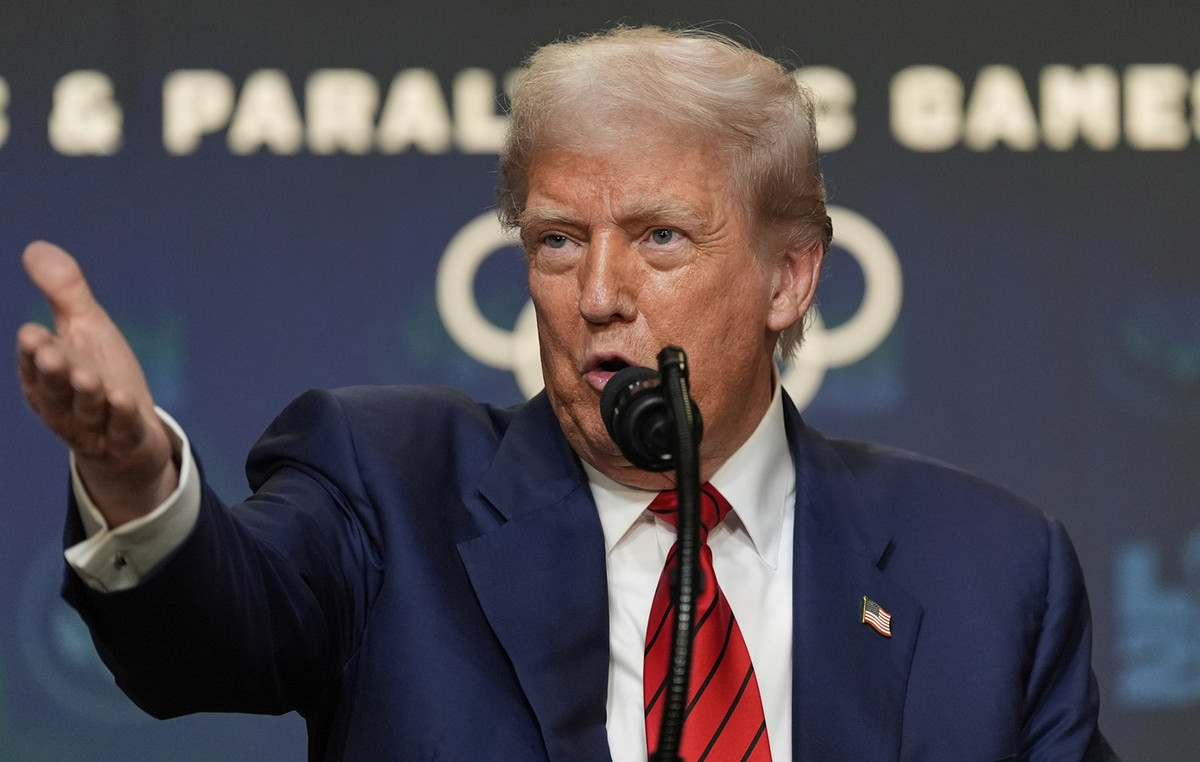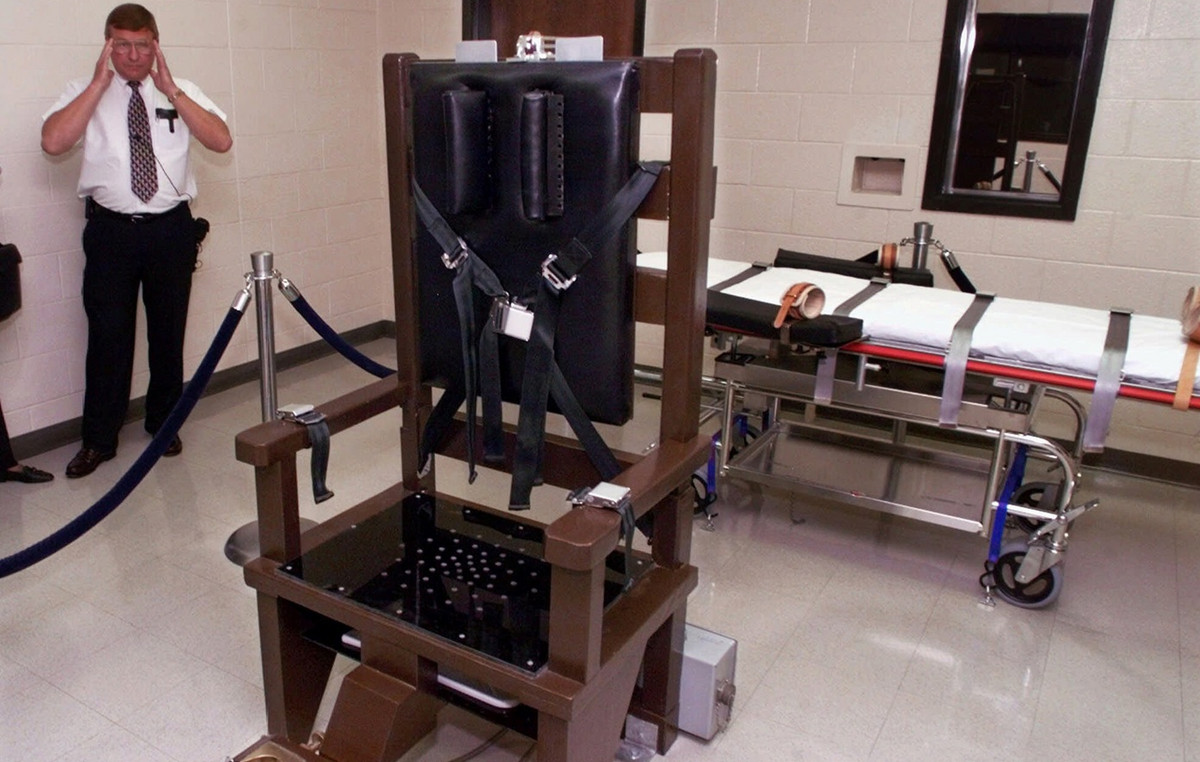The difference between the inflation Brazil and countries like the United States and the euro zone fell this year compared to 2021, according to data from the Organization for Economic Cooperation and Development (OECD ) collected by CNN Brasil Business .
For specialists, the tendency is for this difference to decrease even more, since Brazilian inflation tends to start a downward movement after reaching an apparent peak.
However, Brazil’s inflation is still expected to end 2022 above United States and gives Europe the highest in 40 years.
The most recent projection by the Central Bank is that inflation will end the year at 8.8%. already the Federal Reserve forecasts that US inflation will end at 5.2%, while the European Central Bank (ECB ) expects an index at 6.8%.
An exception is the United Kingdom, where the Bank of England expects a year-end inflation of 11% , above projections for Brazil. In addition, the market has had more optimistic numbers. O last Focus Bulletin points to an inflation expectation of 7.67% in 2022.
The importance of the Central Bank
For Simão Silber, a professor at FEA-USP, Brazil’s inflation peaked in June and tends to fall in the coming months. He attributes the move to a “horsepower” increase in the country’s interest rate, the Selic .
Between 2021 and 2022, interest rates rose from 2% to 13.25%, and the municipality has yet to make a new high, approaching the rate of 14%.
The professor evaluates that “this is what is causing inflation to begin to decrease. The forecast for this year, two weeks ago, has already been falling by the market, while in other countries or regions they are rising”.
He says that the difference with other countries, especially large economies, occurs because in these places central banks were more cautious and took longer to raise interest rates, fearing their recessive effects.
Silber also considers that the Brazilian autarchy acted as a “lone rider”, since the government’s fiscal area “is very bad” amid projects to increase spending before the elections, focused on the so-called Benefits PEC .
The advantage of the Central Bank, in the professor’s view, was the approval of the law that guarantees its autonomy, allowing it to fight inflation independently.
In this scenario, “the tendency is for the economy to slow down quickly and to have a drop in inflation, but we will have very low growth in 2023”.
Alexandre Espírito Santo, chief economist at Órama Investimentos, also believes that Brazilian inflation has reached a peak, largely due to the actions of the Central Bank.
“The Central Bank acted very quickly in 2021 when it realized that the situation was different from what was imagined for the beginning of the pandemic, and it made an interest rate shock that we had not seen for a long time, and it is having an impact, it worked to rescue the anchor of the pandemic. inflation,” he says.
He also attributes the fall in inflation in the year to the government’s bill that reduces the ICMS from a charging ceiling for fuel, energy, telecommunications and transport, with a consequent fall in the prices of these products.
For him, the project “gives some comfort to the fuel issue and somehow secures the possible readjustments that could happen in fuels due to the high oil prices with the war, even with a recent drop”.
The economist considers that a positive sign of the reduction of inflationary pressures came from the June IPCA data , with a diffusion rate falling from 80% to 77%. The number “is good, and shows that there has been a reduction in this spread of high prices, which is positive”.
Espírito Santo states that, in rich countries, central banks were slow to act and fight inflation, which was worsened by the effects of Ukraine war particularly in Europe.
Another factor that influences uncontrolled inflation in these regions is that the central banks of these countries “put a lot of currency in the economy during the pandemic”, helping the population and companies to go through the pandemic.
The volume of money, however, led to a pressure of demand that added to the supply shock, worsening the inflationary scenario until the respective authorities started to initiate, or to consider, in the case of the ECB, cycles of high interest rates.
Inflation at the end of 2022
Despite the inflationary picture, both the Fed and the ECB project that their inflations will peak in 2022, and then fall in the same year.
The economist at Órama assesses that the forecast is possible, as central banks have begun to act. The Fed has already raised rates by 1.5 percentage points in three meetings, while the European authority has indicated that it will begin its rate hike cycle in July.
“As long as there is a reduction in demand, it is possible. These countries will have to face a recession or stagflation to help reduce inflation along with monetary policy”, he highlights.
However, Espírito Santo recalls that the inflation scenario is already beginning to “cause victims” in these countries. In the United Kingdom, for example, the economic situation was one of the causes for the Boris Johnson’s resignation . In the United States, the President Joe Biden’s approval dropped and your party could lose the midterm elections.
“The political scenario is also something that needs to be considered, because politically all governments are under pressure due to high inflation, with central banks having to act, it’s the worst of all worlds”, he assesses.
Even so, the economist expects Brazilian inflation to end the year at a higher level than that of richer nations.
A factor that weighs in this regard is the composition of the analysis basket of products that are measured in inflation indices, and which vary from country to country.
In addition, Espírito Santo recalls that inflationary indices are often used as references for readjustments, in the case of the IGP-M in rent, which creates a “snowball” in situations of high inflation and a transfer to subsequent months, in the so-called inertia, worsening the situation.
Silber considers that, based on the picture of global inflation in the 1970s, the trend is for the world to move towards a recession due to the interest rate cycle to combat inflationary pressures.
In this sense, he is also betting on a spike in inflation in the United States and Europe this year, but with high interest rates slowing the economy.
In the case of Brazil, the professor assesses that “higher inflation is typical of an emerging market, where the country’s credibility is lower, and brings more insecurity, capital flight”.
“The exchange rate is rising now, indicating that the credibility of fiscal policy is very low, and this adds fuel to the fire of inflation”, he observes.
With the Benefits PEC bringing more fiscal risk, and helping the dollar to appreciate, he says that the situation ends up “getting in the way of the fight against inflation”, leading to a slower drop in the index, as in 2023.
“It will be the second year without meeting the goal, and in 2023 we should not meet it either”, he points out.
Source: CNN Brasil
I am Sophia william, author of World Stock Market. I have a degree in journalism from the University of Missouri and I have worked as a reporter for several news websites. I have a passion for writing and informing people about the latest news and events happening in the world. I strive to be accurate and unbiased in my reporting, and I hope to provide readers with valuable information that they can use to make informed decisions.







